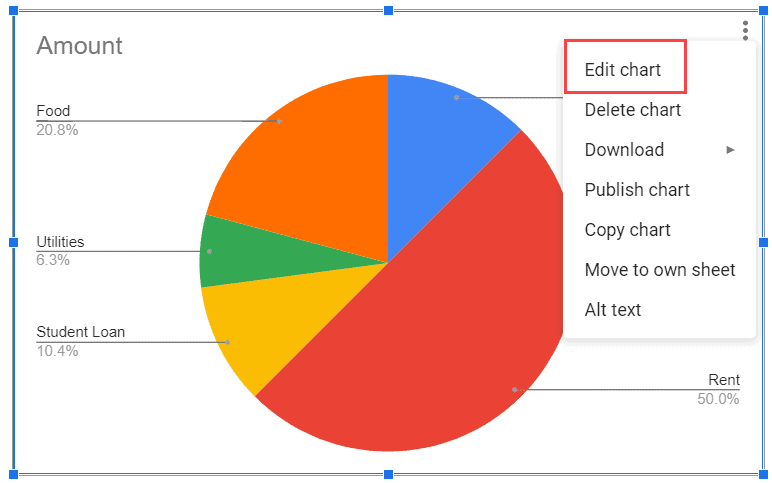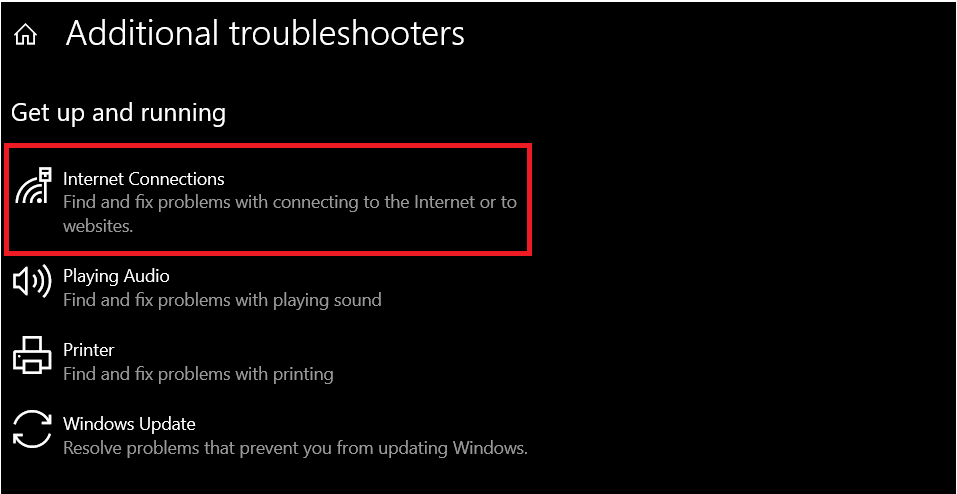As much as we love our jobs, there are times when we simply can’t make it to work. Whether it’s due to an illness, a family emergency, or simply needing a mental health day, calling out of work is sometimes necessary. However, it can be difficult to come up with a legitimate excuse that your boss will accept without asking questions.
Keep reading for common and acceptable excuses to call out of work (that won’t raise too many red flags with management).
This Article Covers:
20 Legitimate Excuses to Call out of Work
Whether it sounds legitimate or is an actually serious issue, telling your boss you’re not coming in might feel daunting. That’s why we’ve compiled a list of good excuses to call off work. You should only use these excuses when you really need to take a day off. Be honest with your employer and communicate any issues affecting your work schedule.
Related: Effective Email Communication in the Workplace
-
Feeling Sick
The most common excuse for calling out of work for good reason. If you’re genuinely ill, it’s best to stay home and get some rest. If you think you have a communicable illness or your symptoms would prevent you from working at your optimum, let your boss know.
-
Family Emergency
Family emergencies are a legitimate reason to call out of work, whether it’s a sick family member or a child who needs to be picked up from school. You could include details about how you’ve exhausted your options and have no other choice but to leave work early.
-
Car Troubles
If your car won’t start or you have a flat tire, that can throw a wrench into your commute plans. Most employers will understand, especially if you live or work in a more remote area.
-
Jury Duty
If you’ve been summoned for jury duty, you’re legally required to take time off work. Provide your manager with proof of your summons.
-
Mental Health Day
Psychological health is just as important as physical health, and many, many employers are starting to understand the importance of days off. If you’re feeling overwhelmed and need a break, speak with your manager and see if you can take a mental health day.

-
Bad Weather
If there’s a snowstorm or other extreme weather, staying home is better than taking unnecessary risks. If enough people at your workplace feel similarly, management may even opt to close for the day.
-
Migraine
Migraines are both painful and debilitating, affecting more than 16% of the population. If you suffer from chronic migraines, consult your health provider for a medical note. Your employer should be understanding.
-
Food Poisoning
We’ve all been there. If you’ve eaten something that’s made you sick, stay home and rest up.
-
Allergies
Allergies can be tough to deal with and certainly affect your ability to work. If you’re having a bad allergy day, tell your manager that you need a day off. If you’re having an allergic reaction (i.e., anaphylaxis), you’ll obviously need to prioritize your health.
-
Dental Appointment
Dental appointments can be time-consuming and painful. If you need to get a tooth pulled or a cavity filled, take the day off and rest.
-
Doctor’s Appointment
Doctor’s appointments are important and shouldn’t be put off. If you need to see a doctor, prioritize your health and take the necessary time off. If management requires it, ask your healthcare provider for a doctor’s note.
-
Pet Emergency
If your pet is sick or injured and needs to get to a vet ASAP, it’s understandable that you’ll be doing that. Since the majority of people have a dog or cat, your boss will likely give you time off to manage this.

-
Childcare Issues
If your child unexpectedly needs to stay home due to school closure or your babysitter canceled, most managers will comprehend the situation. If you can work from home, this might be optimal for both parties.
Related: Best Remote Work Communication Tools
-
Death in the Family
If you’ve experienced a loss in your family, it’s understandable that you’ll need to take time to grieve and be with your loved ones. Your contract typically outlines bereavement leave, so check stipulations before calling your employer.
-
Car Accident
If you’ve been in a car accident, focus on handling the situation. Go to the hospital, get your vehicle inspected, and handle police and insurance issues.
-
Urgent Home Repair
There’s not a lot you can do when freak events happen. Whether your bathroom is flooding or your roof caves in, these are good excuses to miss work on short notice.
-
Transportation Issues
When it comes to transportation issues (such as a train delay or flight cancellation), you should let your boss know as soon as possible.
-
Sick Child
If your child is sick and needs to stay home from school, it’s understandable that you would need to stay home with them.

-
Religious Holiday
If an important religious holiday requires time off work, inform your boss beforehand.
-
Moving Day
If you’re moving house, it’s a busy and stressful time. As soon as you know the moving date, give your boss a head’s up and request time off in advance.
How to Call out of Work Without Getting Into Trouble
Communication is key, so be honest and upfront about why you need to call off, and always follow your company’s call-off procedures. To do it properly — and avoid getting in trouble with your boss — here are some tips.
1. Give Your Boss Advanced Notice
Let your employer know as soon as you know you can’t make it to work. Giving them enough time helps them arrange for other employees to cover your shift.
2. Be Honest
You don’t need to go into great detail, but it’s important to be honest about why you need to call off. If you’re sick, say so. If you have a family emergency, let your employer know. Including too many details can also sound suspect.
3. Follow Company Procedures
Every company has its own procedures for calling out of work. Whether you need to call a certain number, speak to a specific person, or fill out a form, make sure you follow them to the letter.
4. Offer to Make it Up
If possible, offer to make up the time you missed. This will show your employer that you’re committed to your job and willing to go the extra mile.
5. Don’t Make It a Habit
While it’s okay to call off work from time to time, don’t make a habit of it. This can hurt your reputation and may even put your job in jeopardy.
Bad Excuses for Calling Out of Work
Some excuses just won’t cut it. Here are some bad excuses for calling out of work that you should avoid using:
1. Hangover
While we all enjoy a night out with friends, calling out of work due to a hangover does not look good. It shows that you didn’t prioritize your responsibilities and can come across as unprofessional.
2. “I Don’t Feel Like It.”
This excuse is just lazy and won’t impress your boss. It’s important to be honest with yourself and your employer about why you need time off.
3. Unapproved Vacation Time
If you didn’t get approval for vacation time, don’t try to call out of work and use it anyway. This can lead to serious consequences and can damage your professional reputation.
4. Job Interview
Calling out of work for a job interview is pretty disrespectful to your current employer. Try to schedule interviews outside of your working hours or request a few hours off (with advance notice).
Related: Update Your New Job or Promotion on LinkedIn
5. Sporting Event or Concert
Calling out of work to attend a sporting event or concert isn’t a valid excuse. Your employer expects you to be responsible and prioritize your work responsibilities.
6. Heavy Traffic
While traffic can be frustrating, it’s not a good excuse to call out of work routinely. Remember, your employer relies on you to show up and do your job. To avoid being late in the future, leave earlier or find an alternative route.
Frequently Asked Questions
Can You Say You’re Feeling Tired as an Excuse to Miss Work?
Are you struggling with sleep or dealing with a health issue that’s affecting your energy levels? Taking a day off to rest and recover can help you avoid burnout. It can also help you return to work feeling more prepared and ready to tackle responsibilities.
Be honest with yourself and your employer about why you’re feeling tired. If you’re using it as an excuse to avoid work or to have a long weekend, it’s not a valid reason. If you genuinely need a day off due to exhaustion, explain your situation honestly and respectfully. Be willing to work with your manager to find a solution.
Is It a Bad Sign When You Make Excuses to Miss Work?
While it’s normal to have the occasional sick day or personal day, constantly making excuses to miss work requires some evaluation. When you start finding reasons to call out of work, it can be a sign that you’re:
- Feeling overwhelmed, stressed, or burned out
- Not being challenged enough in your job
- Unhappy with your work environment or colleagues
- Dealing with personal issues outside of work
To address these potential issues — and find ways to improve the situation — speak to your manager about your workload, seek out new challenges or responsibilities, or address existing conflicts with colleagues. You may also want to consider contacting a therapist or counselor, practicing self-care activities, or finding ways to manage stress and anxiety.
Can You Get Fired for Calling in Sick?
As employees, we all have the right to take time off work when we’re unwell. However, there are some situations where calling in sick could result in disciplinary action or even termination of employment.
Employers can request evidence of illness to verify the employee was unwell (such as a doctor’s note). If an employee fails to provide requested evidence, it might be considered a breach of company policy and lead to disciplinary action.
Note: It is illegal to forge a fake doctor’s note for work.
In some cases, an at-will employee can be dismissed for excessive absences. Check your employment contract for the maximum number of sick days an employee can take before disciplinary action is taken.
Depending on the employer, contract, and state laws, employees cannot be terminated for taking time off work due to illness (as this would be considered discrimination). If you feel that you’ve been unfairly dismissed or disciplined for taking time off work due to illness, you may be able to make a complaint to your employer’s legal team or seek legal advice from your state government.
Before You Go…
If you keep finding excuses to call out of work, you might be facing stress or burnout. To help you stay motivated outside of the office, consider taking some Skillshare classes.
From learning graphic design to exploring personal growth methodologies, there are hundreds of courses to take. The first month is free, so what do you have to lose?
Related:





